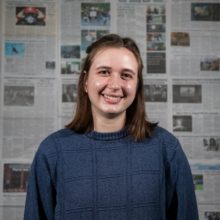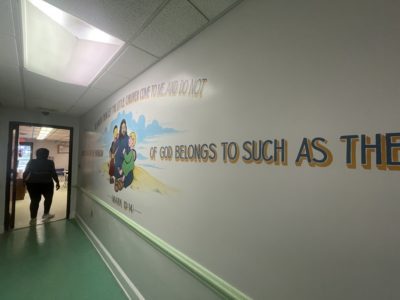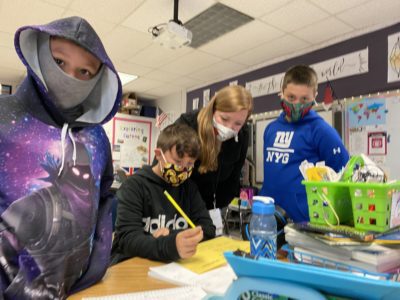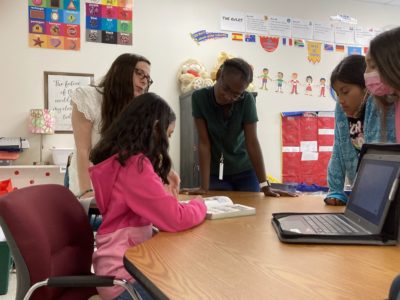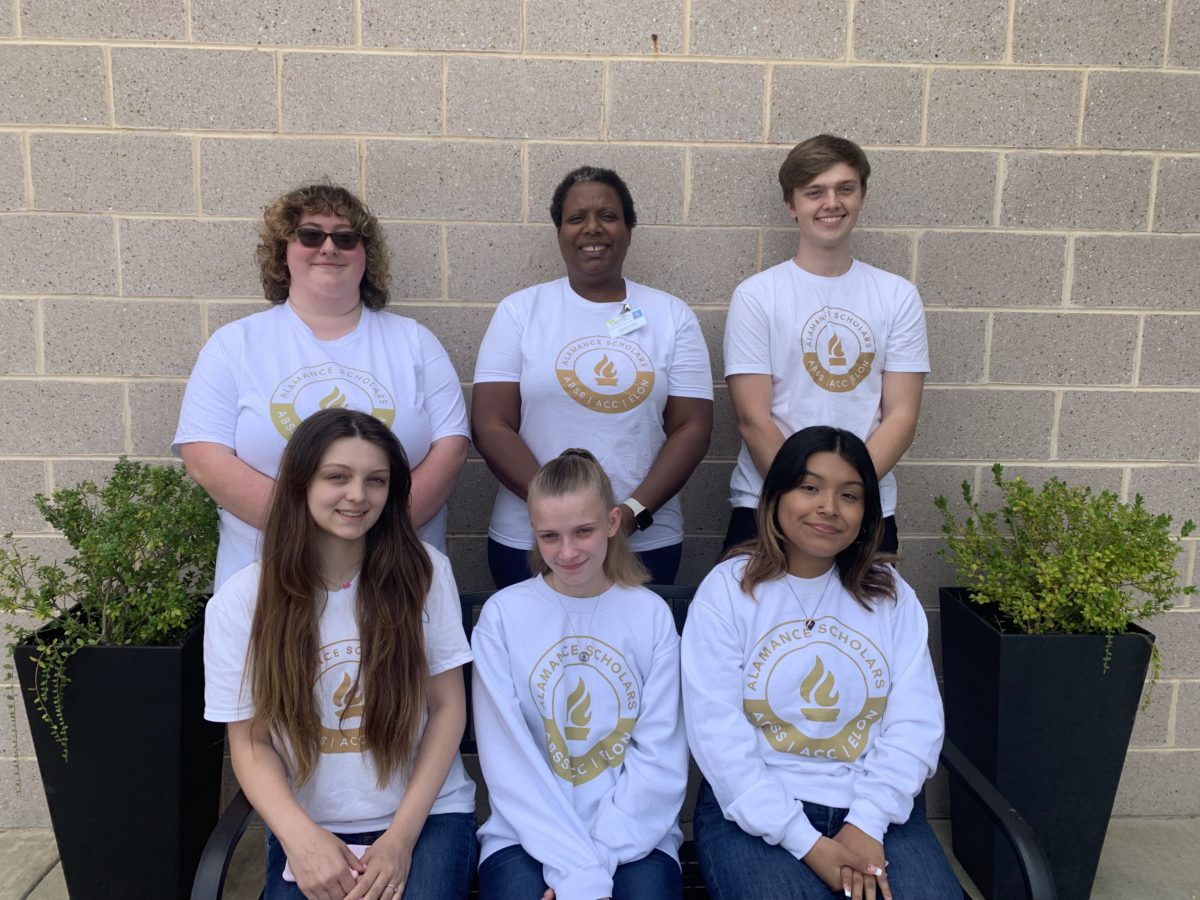
|
|
Alamance Community College, Elon University, and the Alamance-Burlington School System are teaming up to strengthen the local community’s teacher pipeline.
The Alamance Scholars program, launched last year, provides a pathway for high school students to become teachers in the county. The goal is for them not only to become employed by the local school district but also to graduate with little to no college debt.
Educational services is one of the top industries in the county and one of the industries where Alamance Community College (ACC) has the largest impact. According to an economic impact study done last year, ACC adds $149.8 million in income to the Alamance County economy each year.
Alamance Scholars is not the first “grow-your-own” initiative in the state, but it does work a little differently.
The Alamance Scholars program creates a pathway for Alamance-Burlington School System (ABSS) students interested in becoming teachers to attend Alamance Community College, transfer to Elon University after two years, and then graduate with a bachelor’s degree. Upon graduation, these students are guaranteed a job in the Alamance public school system.
Students in the program don’t just get to take education courses. Along the way, they gain field experience, receive special advising, and are eligible for various scholarships. This field experience includes job shadowing and mentoring from teachers within the district. Alamance Scholars also receive differentiated tuition at Elon, making it more affordable. And the program is not just limited to high school students; ACC students can join the pipeline as well.
What makes the program unique is the three-way partnership between the school district, community college, and a private four-year university, said Ann Bullock, Dr. Jo Watts Williams Dean of Education at Elon.
“This type of program is what’s needed to keep folks in the schools, to build new pipelines, and to graduate teachers with less debt,” Bullock said.
“I don’t know of another community college in this state that enjoys the wonderful relationship of their public schools and/or any university, and we have that benefit here, and we cherish it greatly,” ACC President Dr. Algie Gatewood said when the program was announced last year.
The program welcomed its first cohort of high school students in fall 2021. While still at ABSS, students start getting real-world experience by taking Career and College Promise courses and shadowing teachers at schools in the district.
Jodi Hofberg, teacher scholars program coordinator at ABSS, explained that mentorship is a major component of the program. While they’re still in school as teacher cadets, the Alamance Scholars are paired with a local teacher.
These mentors give the scholars advice and prepare them for what it’s really like to be a teacher so they can be successful once they’re in the classroom later down the line.
Not only does this give the students a sense of confidence, but it also incorporates the entire school community.
“Teachers really are buying in and appreciate that the work we’re doing is to find students who want to teach and come back to ABSS,” Hofberg said.
The school district values homegrown talent, she said, and that’s what the program is all about.
Though leaders of Alamance Scholars say they are careful to tell students about the challenges that come with being a teacher, the support these students get along the way is crucial to making sure they’re successful.
“They feel a sense of belonging already from the profession,” said Jennifer Jones, an education instructor at ACC, adding that they get a chance to learn about all the options available to them early on.
In addition to the resources the schools provide to the scholars along the way, they also try to get them excited about the college experience. For many students in the program, school leaders explained, attending Elon may have been out of reach if not for the program.
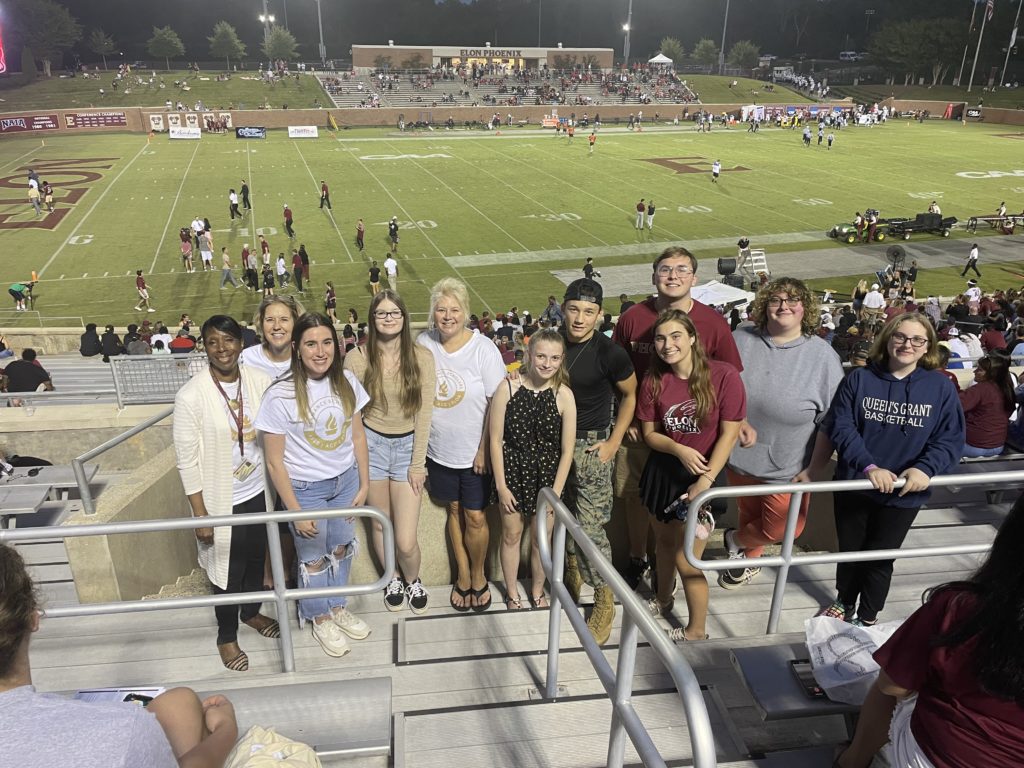
The program began its second full year this fall. A few students have already transferred to Elon from ACC, and there are a handful of teacher cadets currently in high school.
Bullock emphasized how meaningful it is that the three educational institutions are partnering to have this local impact.
“A lot of human capital invested in this because of the belief in the public school and the mission to put more teachers in our community,” Bullock said. “And for the state community college and the public school system to be working with a private university that’s in their town, and for us to say, ‘We believe in this.’ It’s a lot.”
Revonda Johnson, chief academic officer for ABSS, said she’s glad to see North Carolina’s higher education institutions noticing the teacher shortage and working to make the profession more accessible.
“We want (students) to go be successful and come back home and teach for us,” Johnson said, “because we want to be one of those districts that they do a spotlight on of “There were no vacancies this year because they had so many come back.”
